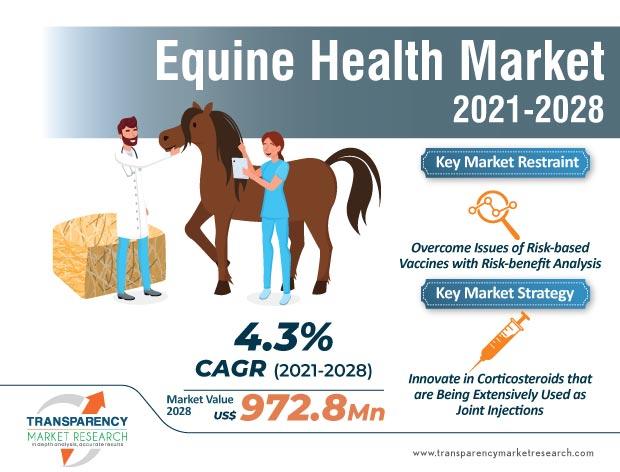Deep in the heart of the countryside, among the rolling hills and lush pastures, lies a hidden treasure trove of knowledge waiting to be discovered. The world of equine health is a complex and enigmatic one, filled with age-old wisdom and modern advancements. In this comprehensive guide, we delve deep into the secrets of equine health, unlocking the mysteries that have puzzled horse owners for centuries. From nutrition to exercise, grooming to veterinary care, this article will provide you with the tools and knowledge you need to keep your four-legged companion happy and healthy for years to come. So saddle up and join us on this journey as we uncover the mysteries of equine health and unlock the secrets that will help your horse thrive.
Understanding Equine Nutrition: Key Factors for Optimal Health
When it comes to ensuring optimal health for your horse, understanding equine nutrition is key. By providing your horse with the right balance of nutrients, you can help support their overall well-being and performance. Here are some key factors to consider:
- Quality Forage: The foundation of your horse’s diet should be high-quality forage, such as hay or pasture. Forage provides essential fiber, which is important for digestive health and helps prevent issues like colic.
- Protein: Protein is essential for muscle development, tissue repair, and overall growth. Make sure your horse is getting enough protein from sources like alfalfa, soybean meal, or grass.
- Vitamins and Minerals: Your horse also needs a variety of vitamins and minerals to support their overall health. Consider supplementing their diet with a balanced vitamin and mineral mix to ensure they are getting all the nutrients they need.
It’s important to remember that every horse is unique and may have different nutritional requirements based on their age, breed, activity level, and health status. Consulting with a veterinarian or equine nutritionist can help you develop a customized feeding plan that meets your horse’s specific needs.
Identifying Common Health Issues in Horses: Signs, Symptoms, and Treatments
When it comes to keeping your horse healthy, it’s essential to be able to identify common health issues quickly. Knowing the signs and symptoms can help you address any problems before they escalate. Here is a comprehensive guide to help you unlock the secrets of equine health.
One common health issue in horses is colic, which can be identified by signs such as pawing, rolling, and restlessness. Other symptoms may include a loss of appetite and changes in bowel movements. Treatment for colic typically involves pain management and sometimes surgery if necessary.
Another prevalent health concern for horses is lameness, which can be caused by various factors such as muscle strains, joint issues, or hoof problems. Signs of lameness include a limp, reluctance to move, and swelling in the affected area. Treatment may involve rest, physical therapy, or corrective shoeing.
The Importance of Regular Veterinary Care for Your Horse
Horses are magnificent creatures that require proper care and attention to ensure their well-being. One of the most important aspects of maintaining a healthy horse is regular veterinary care. By scheduling routine check-ups with a trusted equine veterinarian, you can address any potential health issues before they become serious problems. These routine visits can also help establish a baseline for your horse’s health, making it easier to spot any changes or abnormalities in the future.
During a veterinary exam, your horse’s overall health will be assessed, including their weight, body condition, and vital signs. The veterinarian will also perform a thorough physical exam, checking for any signs of illness or injury. They may recommend additional diagnostic tests, such as blood work or imaging studies, to further evaluate your horse’s health. By staying on top of your horse’s veterinary care, you can catch any potential health issues early and provide them with the best possible treatment.
In addition to routine check-ups, it’s important to address any specific health concerns or issues your horse may be experiencing. Your veterinarian can help develop a customized health care plan for your horse, including vaccinations, dental care, parasite control, and nutrition. They can also provide guidance on proper diet and exercise to keep your horse in optimal health. By working closely with your veterinarian and following their recommendations, you can ensure that your horse remains happy and healthy for years to come.
Incorporating Exercise and Mental Stimulation in Your Horse’s Daily Routine
Keeping your horse in optimal health goes beyond just providing food and water. Regular exercise and mental stimulation are essential components of a well-rounded daily routine for your equine companion. By incorporating activities that engage both their body and mind, you can help ensure they stay happy and healthy for years to come.
One way to incorporate exercise into your horse’s daily routine is through regular riding or ground work. This not only helps to keep them physically fit but also provides mental stimulation as they learn new skills and are exposed to different environments. Additionally, setting up obstacle courses or creating a variety of riding trails can add an element of fun and challenge to their exercise regimen.
Another important aspect of keeping your horse mentally stimulated is through enrichment activities. This can include puzzle feeders, toys, or even introducing them to new experiences such as trail rides or training exercises. By keeping their minds engaged, you can help prevent boredom and encourage them to stay active and curious.
Tips for Creating a Healthy and Balanced Diet for Your Equine Companion
Ensuring your equine companion has a healthy and balanced diet is essential for their overall well-being. By following these tips, you can unlock the secrets to maintaining optimal equine health.
- Provide a constant supply of fresh water: Water is crucial for digestion and overall health. Make sure your horse always has access to clean, fresh water.
- Offer quality forage: Forage should make up the majority of your horse’s diet. Good quality hay or pasture is essential for proper digestion and nutrition.
- Include a balanced concentrate: In addition to forage, your horse may need a concentrated feed to meet their specific dietary requirements. Consult with a veterinarian or equine nutritionist to determine the best option for your horse.
| Tip | Description |
|---|---|
| Regular exercise | Keep your horse active to help maintain a healthy weight and overall fitness. |
| Monitor body condition | Regularly assess your horse’s body condition to ensure they are not under or overweight. |
The Way Forward
As you navigate the intricate world of equine health, remember that knowledge is power. By unlocking the secrets of equine health, you will be able to better understand and care for your four-legged companions. Whether you are a seasoned equestrian or a newcomer to the world of horse care, this comprehensive guide will serve as a valuable resource on your journey. So, saddle up and embark on this enlightening exploration of all things equine health. Your horses will thank you for it!



